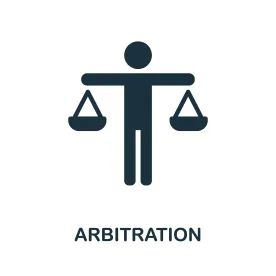The U.S. Court of Appeals for the Ninth Circuit struck down the California Legislature’s latest attempt in a prolonged effort to limit employers’ ability to make arbitration of all disputes a condition of employment. In an opinion issued on February 15, 2023, the Ninth Circuit ruled that the law, Assembly Bill 51, is preempted by the Federal Arbitration Act (FAA) because the law created an obstacle to arbitration that conflicted with the FAA’s broad mandate in favor of arbitration.
A.B. 51 was first enacted in October 2019 and was set to take effect on January 1, 2020. Rather than prohibit arbitration provisions outright, the law made it a criminal offense for an employer to require an employee or applicant to agree to an arbitration provision as a condition of employment, and further provided that an agreement that required an employee to opt out of a waiver or take any affirmative action to preserve their rights was deemed a condition of employment.
On December 30, 2019, the U.S. District Court for the Eastern District of California enjoined enforcement of A.B. 51 on the grounds that the law was preempted by the FAA. That decision was appealed to the Ninth Circuit, which issued an initial opinion on September 15, 2021. The majority opinion held that A.B. 51 is not preempted by the FAA because it purports to do no more than require that arbitration agreements entered into between employers and employees be voluntary and consensual. In the meantime, the U.S. Supreme Court ruled in Viking River Cruises, Inc. v. Moriana, which found that parts of another California law – the state’s Private Attorneys General Act – were preempted by the FAA. In the wake of that ruling, the Ninth Circuit took the unusual step of withdrawing its own opinion and granting a rehearing.
In its just-issued opinion, the Court reversed itself, holding that A.B. 51 created an “unacceptable obstacle to the accomplishment and execution of the full purposes and objectives” of the FAA by disfavoring the formation of arbitration agreements. It rejected the previous arguments, reiterated by the dissent, that A.B. 51 should not be preempted because it merely requires that agreements to arbitrate be voluntary and consensual. The Court noted that a contract may be “consensual” under contract law, even if one party accepts unfavorable terms due to some degree of unequal bargaining power so long as it is not invalid based on contract principles of unconscionability. Declining to merely sever the provisions of A.B. 51 that imposed criminal and civil penalties against employers that required mandatory arbitration clauses, the court held that “[b]ecause all provisions of A.B. 51 work together to burden formation of arbitration agreements, we conclude that the FAA preempts A.B. 51 as a whole to the extent it applies to arbitration agreements.”
While employers with California employees may momentarily heave a sigh of relief that mandatory arbitration provisions entered into as a condition of employment are enforceable, it’s still unclear that this issue has been put to rest for good. The California Attorney General, who represented the state in the case, could petition for the case to be taken up by a larger, 11-judge “en banc” panel of Ninth Circuit judges, or could seek to have it taken up by the U.S. Supreme Court. We’ll monitor and report on further developments, if any.





 />i
/>i
